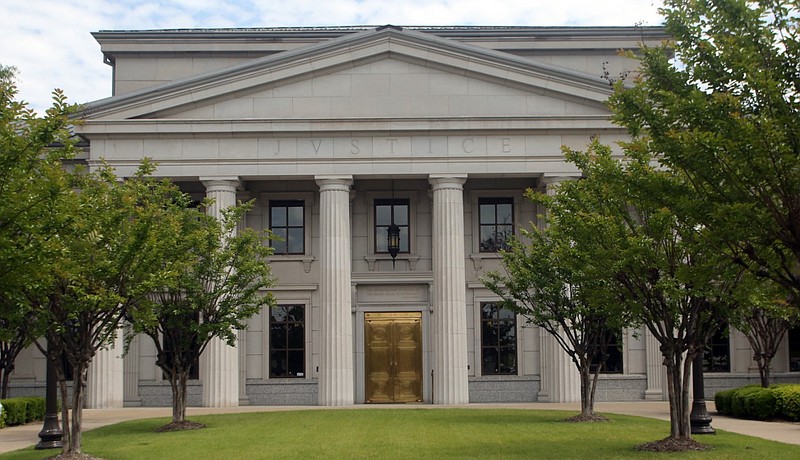The Arkansas Supreme Court on Thursday dismissed a lawsuit from a Little Rock man who argued that the decline of newspaper subscriptions in the state left voters uninformed about a pair of proposed constitutional amendments placed on this year's ballot by the Legislature.
The 5-2 majority decision by the high court rejected a call by Andrew Kimbrell, the plaintiff, to overturn the court's long-standing precedent that measures placed on the ballot by lawmakers can be removed by the courts if the description of the measure placed on the ballot contains "manifest fraud."
Kimbrell argued that that standard is based on the assumption that voters can gather a more complete understanding of the Legislature's proposed amendments from public notices that are required to be placed in newspapers prior to an election.
Citing statistics showing newspaper readership dwindling to just over a quarter of registered voters, Kimbrell argued that the standard is no longer relevant.
[RELATED: Full coverage of elections in Arkansas » arkansasonline.com/elections/]
"Newspaper circulation and readership is at an all-time low and declining rapidly, and newspaper readers are showing little interest in the public notice section of the newspaper," Kimbrell's attorney wrote in a brief submitted to the Supreme Court. "That being the case, the Court must revisit whether the newspaper publication requirement under [the Arkansas Constitution] is sufficient to sustain the presumption of informed voters."
More specifically, Kimbrell asked the court to adopt a stricter standard and use it to strike down Issues 2 and 3 on this year's ballot -- which proposed changes to legislative term limits and the citizen initiative process, respectively -- which Kimbrell argued were being misrepresented to the voters.
Issue 2 was approved with more than 55% of the vote last month, while Issue 3 failed after earning only 44% of the vote.
The court's majority, in an opinion written by Justice Karen Baker, said Kimbrell's delay in filing the lawsuit until just before the election had left even the controversy over Issue 2 moot.
"The amendment was presented to the voters, the voters cast their ballots, the votes have been counted, the amendment was approved, and the deadline for the county boards of election commissioners to certify the election has passed," Baker wrote, later adding. "Accordingly, a judgment by this court will have no practical legal effect; therefore, the issue is moot."
Kimbrell's attorney, David Mitchell, did not respond to requests for comment on Thursday.
Joining Baker in the majority were Justices Robin Wynne and Courtney Hudson.
Justice Josephine Hart wrote a concurring opinion joined by Justice Shawn Womack, which stated that the duo agreed with the decision to dismiss the case, but disagreed with the mootness rationale.
In a dissent, Chief Justice Dan Kemp wrote that he simply would have affirmed a lower court's decision to dismiss the case, rather than dismissing the appeal. Kemp's dissent was joined by Justice Rhonda Wood.
The separate opinions written by Baker, Hart and Kemp all additionally pointed to their own decision last month rejecting a challenge to Issues 2 and 3 from local term-limits activist Tom Steele.
Steele had urged the court to depart from its nearly four-decade-old precedent and hold the wording of legislatively referred measures to the same standard as measures proposed by citizens, which can be kicked off the ballot if they are not deemed "intelligible," "honest" and "impartial."
The court declined to do so, and upheld Circuit Judge Mary McGowan's decision to dismiss Steele's lawsuit. McGowan also handled Kimbrell's case.
